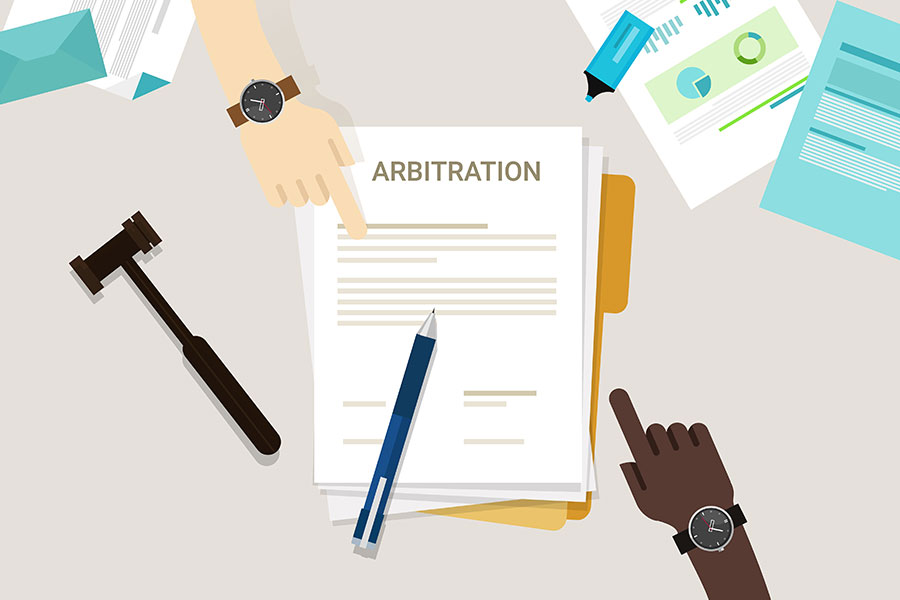Vivad Se Vishwas Scheme II

The government has been facing financial losses caused by challenging arbitration awards in favor of contractors. The backlog of old litigation cases negatively impacts fresh investment, ease of doing business, working capital, and competition for new tenders. The government has introduced the ‘Vivad se Vishwas II (Contractual Disputes)’ scheme as a one-time settlement solution for pending disputes.
1. The report of NITI Aayog’s Task Force emphasizes the importance of contracts between the government and private entities to attract investment and promote a pro-business environment.
2. This scheme applies to contractual disputes where one party is either government or an organization, the applicability of the scheme is on the parties mentioned below:
a. Autonomous bodies of the government
b. Public sector banks and financial institution c. Central Public Sector Enterprises( CPSE)
d. UT’s without legislature and agencies
e.Organizations where the government has 50% or more shares at their discretion can opt-out with Board of Directors approval.
3. The scheme covers disputes where the award by the court/Arbitral Tribunal is monetary in nature, excluding cases involving the specific performance of contracts.
4. Eligibility of the settlement under the scheme:
The limitation dates for the arbitral award and court award which will be eligible under this scheme are mentioned below:
| Arbitral Award | 31.01.2023 |
| Court Award | 30.04.2023 |
5. The scheme is voluntary, and contractors, including Central Public Sector Enterprises, can participate and submit their claims.
6. The scheme applies to domestic arbitration cases but excludes international arbitration cases.
7. The scheme encompasses all types of procurement, including goods, services, works, earning contracts, and Public-Private Partnership arrangements.
8. Amount Payable: The settlement amount offered to contractors varies based on the status of the dispute.
| SI NO. | Status of dispute | Settlement Amount |
| a | Award passed before 30.04.2023 | 85% of the net or lodged amount whichever is lower. |
| b | Award passed before 31.01.2023 | 65% of the net amount awarded or lodged whichever is lower. |
Notes for both the awards mentioned above:
Net amount awarded is (X – Y) if separate payments are specified.
Scheme payment is 85% or 65% of (X – Y), depending on the case.
9% simple interest is payable on the unpaid amount beyond the stipulated time.
Interest is calculated only on the net amount payable under the scheme.
The scheme’s interest rate is fixed at 9% per annum.
9. The scheme allows contractors to settle disputes by voluntarily offering to pay the procuring entity a percentage of 85% or 65% of the net award amount.
10. If the procuring entity has deposited an amount with a court before filing an appeal, the interest payable on the amount due will be calculated without any reduction for the amount deposited.
11. The procuring entity is responsible for taking prompt action to release the deposited amount after the settlement under the scheme is accepted. When challenging an arbitral award, the procuring entity must pay 75% of the award amount to the contractor against a bank guarantee, which will be adjusted with the amounts due under the scheme.
12. Submissions of claims and time period: Contractors should submit their claims through Government e-Marketplace (GeM) or IREPS portals, providing details of the dispute and claim amount.
Step 1: The procuring entities will evaluate the settlement amount due and offer it to the contractor for acceptance within a specified time period.
Step 2: Upon acceptance, an acknowledgement will be generated, and the contractor will have a specific period to withdraw the case from the court.
Step 3: The settlement agreement, digitally signed by both parties, will be executed, and payments will be made within 30 days.
Step 4: If the contractor does not accept the offer, the ongoing litigation process may continue.
13. The status of a dispute will not change if a court passes an award on the dispute after April 30, 2023, and before settlement under the scheme, except in certain cases.
14. Procuring entities must monitor court awards closely for cases where a claim has been lodged by the contractor after January 31, 2023. If a court award is in favor of the procuring entity and decreases the net payable amount to the contractor, the procuring entity must send revised offers to the contractor. The contractor will have 30 days to consider the revised offer.
15. The scheme will commence on July 15, 2023, and claims can be submitted until October 31, 2023.
16. Procuring entities must accept claims under the scheme if the claim amount is Rs. 500 crores or less and in compliance with the guidelines.
17. For claims exceeding Rs. 500 crores, procuring entities have the option not to accept the settlement request. If a decision is made not to accept the claim, it should be communicated to the contractor within 60 days of receipt. Reasons for not accepting the request should be recorded and require the approval of the relevant authority.
18. If a claim exceeds Rs. 500 crores and the request for settlement is not accepted, the reasons must be recorded, and the decision should be based on legal merits and chances of success in court. A special committee may review the case before deciding not to accept the request.
If a settlement cannot be achieved under the scheme, any offers made during the settlement process cannot be quoted in further litigation.
19. In cases where a public authority uses a procuring entity for procurement, the procuring entity is the competent authority to accept settlements. The public authority is responsible for providing the budget for the settlement agreement.
20. The scheme does not apply to cases where parties have already reached a settlement through a conciliation agreement. However, if the conciliation process is still ongoing after an award is eligible for settlement under the scheme, the process provided in the scheme can be followed. The Department of Expenditure may issue directions or orders from time to time for the implementation of the scheme and to address any difficulties that may arise.





